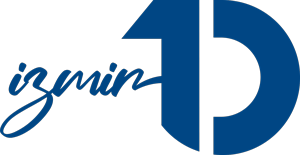Accounting Overview, Principles, Examples, Importance, & Facts
This is the act of tracking and reporting income and expenses related to your company’s taxes. You don’t want to be in a situation where you have to pay more income tax than is normally required by the Internal Revenue Service (IRS). In accounting, you’ll come across certain titles which appear to bear similar duties but actually have unique job descriptions. In this section, we’ll briefly review the roles of accountants vs. CPAs and tax professionals. Accounting information exposes your company’s financial performance; it tells whether you’re making a profit or just running into losses at the end of the day.
Degrees
CFI is on a mission to enable anyone to be a great financial analyst and have a great career path. In order to help you advance your career, CFI has compiled many resources to assist you along the path. Choose your page design, add a profile photo, and toggle on/off the specific achievements you want to be shown publicly. Our Printable PDF Files give you the ability to download our entire collection of materials in high-quality PDF format, so you can study offline anytime, anywhere. Our Bookkeeping Study Guide accelerates your understanding of essential concepts and is a great reference resource on your bookkeeping journey whether you’re brand new or need a refresher.
Relevant information helps improve predictions of future events, confirms the outcome of a previous prediction, and should be available before a decision is made. The hallmark of neutrality is its demand that accounting information not be selected to benefit one class of users to the neglect of others. While accountants accounting methods for obsolete inventory by gaap recognize a tradeoff between relevance and reliability, information that lacks either of these characteristics is considered insufficient for decision making. In addition, quantitative data are now supplemented with precise verbal descriptions of business goals and activities.
Personal Accounts
Tax accountants overseeing returns in the United States rely on guidance from the Internal Revenue Service. Federal tax returns must comply with tax guidance outlined by the Internal Revenue Code (IRC). This institute created many of the systems by which accountants practice today. The formation of the institute occurred in large part due to the Industrial Revolution. Merchants not only needed to track their records but sought to avoid bankruptcy as well. Accounting is the process of tracking the income and expenses of a business or other organization.
- As you can see there is a heavy focus on financial modeling, finance, Excel, business valuation, budgeting/forecasting, PowerPoint presentations, accounting and business strategy.
- Generally speaking, however, attention to detail is a key component in accountancy, since accountants must be able to diagnose and correct subtle errors or discrepancies in a company’s accounts.
- The financial statements used in accounting are a concise summary of financial transactions over an accounting period, summarizing a company’s operations, financial position, and cash flows.
We and our partners process data to provide:
Its use in organizing business transactions and meeting regulatory requirements makes it a field that requires extensive knowledge and study. Larger companies often have much more complex solutions to integrate with their specific reporting needs. The Alliance for Responsible Professional Licensing (ARPL) was formed in August 2019 in response to a series of state deregulatory proposals making the requirements to become a CPA more lenient. The ARPL is a coalition of various advanced professional groups including engineers, accountants, and architects.
Accountants also provide other services, such as performing periodic audits or preparing ad-hoc management reports. Accounting is the process of recording financial transactions pertaining to a business or other large organization. The accounting process includes summarizing, analyzing, and reporting these transactions to oversight agencies, regulators, and tax collection entities. The financial statements used in accounting are a concise summary of financial transactions over an accounting period, summarizing a company’s operations, financial position, and cash flows. Proper accounting helps organizations ensure accurate reporting of financial assets and liabilities.
- These four largest accounting firms (Ernst & Young, KPMG, PricewaterhouseCoopers, Deloitte) conduct audit, consulting, tax advisory, and other services.
- In most cases, accountants use generally accepted accounting principles (GAAP) when preparing financial statements in the U.S.
- The accounting profession covers a broad range of roles, including bookkeeping, tax planning, and audit.
- Just as managerial accounting helps businesses make management decisions, cost accounting helps businesses make decisions about costing.
- Accounting is a term that describes the process of consolidating financial information to make it clear and understandable for all stakeholders and shareholders.
Cost Accounting
These rules specify how to record income, expenditures, assets, and losses, so that auditors have an objective view of the organization’s financial health. Analysts, managers, business owners, and accountants use this information to determine what their products should cost. In cost accounting, money is cast as an economic factor in production, whereas in financial accounting, money is considered to be a measure of a company’s economic performance. Accounting is popularly regarded as “the language of business” because it doesn’t just help you keep track of your money, but also helps you make informed decisions about your business. To speed up action, you may hire accounting professionals or purchase accounting software to ensure accurate financial audits and reporting.
Every transaction needs to be recorded and accounted for properly so that a company’s financial statements are accurate. If not, a company could think it has more or less cash flow, or profits, than it actually has. Inaccurate reporting may later lead to serious problems for a company, meaning it may not be able to pay its debts, or money set aside for investing is not available. Accounting is the process of recording, cataloging, analyzing and reporting a company’s financial transactions.
Much of the reporting of such information is voluntary, especially in the United States. Generally speaking, however, attention to detail is a key component in accountancy, since accountants must be able to diagnose and correct subtle errors or discrepancies in a company’s accounts. The ability to think logically is also essential, to help with problem-solving. Mathematical skills are helpful but are less important than in previous generations due to the wide availability of computers and calculators.
Though many businesses leave their accounting to the pros, it’s wise to understand the basics of accounting if you’re running a business. To help, we’ll detail everything you need to know about the basics of accounting. To illustrate double-entry accounting, imagine a business sending an invoice to one of its clients.
Financial Accounting
Up-to-date records help users compare current financial information to historical data. With full, consistent, and accurate records, it enables users to assess the performance of a company over a period of time. To accountants, the two most important characteristics of useful information are relevance and reliability. Information is relevant to the extent that it can potentially alter a decision.
For years, there has been a push to move the United States to follow IFRS, as IFRS is generally considered to be a better system than GAAP. This may have to do with the fact that the IFRS is more ‘principles-based’, while GAAP is more ‘rules-based’. Most other countries, including Canada, Australia and Mexico, follow the rules set down by the IFRS (International Financial Reporting Standards) Foundation, which is headquartered in London, England. Below is a break down of subject weightings in the FMVA® financial analyst program. As you can see there is a heavy focus on financial modeling, finance, Excel, business valuation, budgeting/forecasting, PowerPoint presentations, accounting and business strategy. Our Business Forms provide professional templates and completed examples in Excel and PDF format, giving you hands-on experience with real accounting documents.
Facilitates decision-making for management
Internal Revenue Service (IRS) and the Canada Revenue Agency (CRA), use standardized accounting financial statements to assess a company’s declared gross revenue and net income. The system of accounting helps to ensure that a company’s financial statements are legally and accurately reported. The financial statements include the income statement, the balance sheet, the cash flow statement, and the statement of retained earnings. The standardized reporting allows all stakeholders and shareholders to assess the performance of a business. Financial accounting involves the preparation of accurate financial statements. The focus of financial accounting is to measure the performance of a business as accurately as possible.

